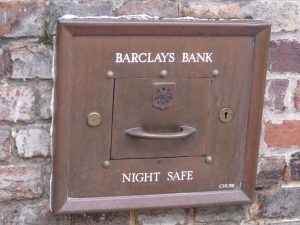 Safeguarding. It’s one of those buzzwords which appears to be everywhere. People toss it into conversation and it’s assumed that everyone knows what it means. Companies use it, the government use it and it’s all over the TV news and press. Do you know what it means? Even if you think you do, the whole issue may be more complex than you think. Most people automatically think safeguarding means children, but it goes much deeper than that.
Safeguarding. It’s one of those buzzwords which appears to be everywhere. People toss it into conversation and it’s assumed that everyone knows what it means. Companies use it, the government use it and it’s all over the TV news and press. Do you know what it means? Even if you think you do, the whole issue may be more complex than you think. Most people automatically think safeguarding means children, but it goes much deeper than that.
Safeguarding : A dictionary definition
So let’s start by looking at how the dictionary defines the term. The dictionary says safeguarding is to “protect from harm and damage with an appropriate measure”. There’s no mention of children, or indeed of any people at all. It could refer equally to locking your valuables away in a safe, which is of course where the word came from in the first place. It could also refer to how you manage your social media accounts, both to protect your computer from hacking, and to ensure you are presenting an image you’re happy with to the world. Make sure you know the context in which the word is being used before leaping to conclusions.
Child Protection and Whistle Blowing
These terms are also used when discussing difficult issues around looking after the most vulnerable members of society. Although they’re often used interchangeably, neither means exactly the same thing as safeguarding. Child protection is a very specific term, which only refers to looking out for the welfare of people under the age of 18. Safeguarding has a wider definition, and in most contexts refers to everyone, of all ages, abilities and situations. Whistle blowing is a related term in that someone who becomes aware of abuse or mistreatment of vulnerable people has the right to raise their concerns and not be sacked for it.
What are companies doing?
Each company will handle safeguarding in a different way. In a retail business for example, there is no need to run DBS checks on employees to keep shoppers safe. Their interpretation of “protection” will probably be more about procedures for handling cash and preventing shop lifting.
If you’re working in a job with children, the elderly or other vulnerable people, there are more steps to go through. Most of these jobs entail a DBS check. DBS checking looks into your police record in an attempt to weed out people who aren’t suitable for positions of trust. Thousands of people apply for a DBS certificate every year and the process is nothing to be scared of. If your circumstances are straightforward, then you should be able to navigate the process yourself. If you have any queries about the form or have personal situations which are out of the ordinary, we can help you with the DBS application process.
Safeguarding is an ongoing process
One key thing to remember about safeguarding is that it’s an ongoing process. It’s not something which companies can do once and file away. This is perhaps the most complex aspect of the whole subject – changing mindsets to put looking out for everyone’s best interests first.